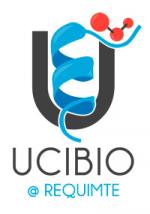Organometallic Compounds in Cancer Therapy: Past Lessons and Future Directions.
- Citation:
- Organometallic Compounds in Cancer Therapy: Past Lessons and Future Directions., de Fernandes, {Maria Alexandra Núncio Carvalho Ramos}, and Baptista {Pedro Miguel Ribeiro Viana} , Anti-Cancer Agents In Medicinal Chemistry, jan, Volume 14, Number 9, p.1199–1212, (2014)
Abstract:
n/a
Notes:
n/a

